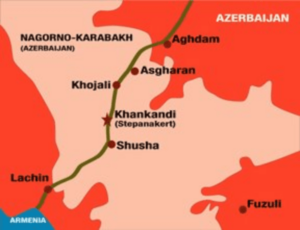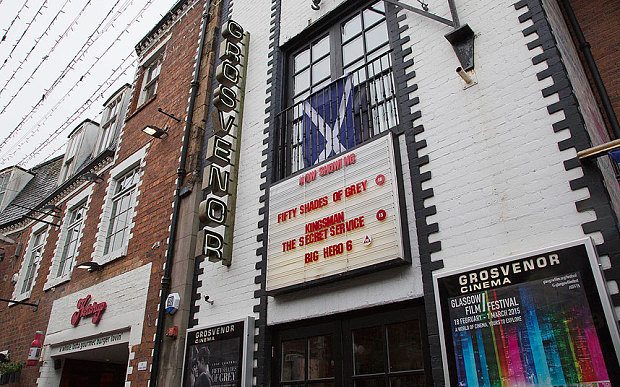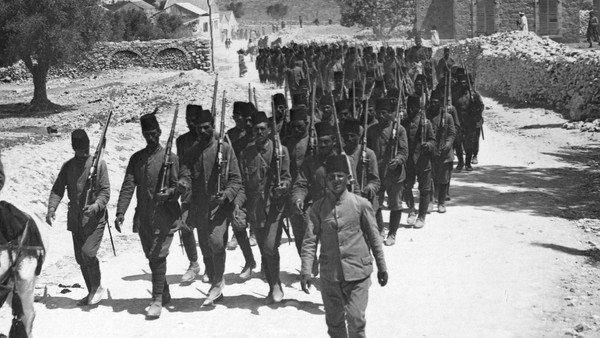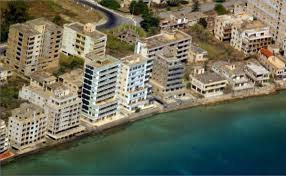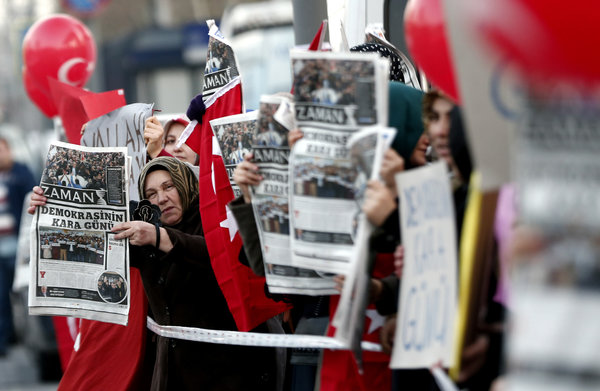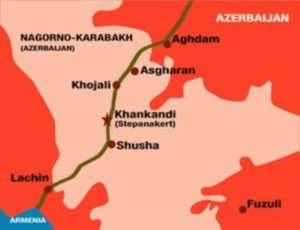 Press Release: The Khojaly Massacre in Feb 1992
Press Release: The Khojaly Massacre in Feb 1992
Khojaly, situated in the Nagorno Karabakh region of the Republic of Azerbaijan, had a population of just 6,300 people before the Armenian army seized control of the southern roads and effectively isolated Khojaly from greater Azerbaijan. Power lines were cut, water was turned off, and many goods were prevented from reaching the embattled civilian population. Those who were able fled the fighting; the rest were forced to wait anxiously as the Armenian army drew ever closer.
On the night of February 25, 1992, the town was surrounded by Armenian armed forces, with the support of the Soviet Union on three sides and only one path of escape was left OPEN for the remaining civilians to flee their doomed town in the middle of the night. After trekking for hours through the bitterly cold woods, the group emerged near the Armenian town of Nakhichevanik. Almost immediately, the densely packed group was struck by a hail of bullets fired by Armenian fighters encamped on the hillside above. The next day, journalists were greeted by a gruesome scene: a field littered with bodies, many of which bore marks of excessive cruelty. One observer noticed powder around gunshot wounds and realized that many of the victims had been shot at point-blank range. Other foreign journalists documented extensive evidence of torture [Le Monde,Paris, 14 March 1992]. In all, 613 civilians were killed, including 106 women, 63 children and 70 elderly people.
“…Before Khojaly, the Azerbaijanis thought that they were joking with us, they thought that the Armenians were people who could not raise their hand against the civilian population. We were able to break that [stereotype]. And that’s what happened…”, then-general Serzh Azati Sargsyan, the current President of Armenia, boasted [Black garden: Armenia and Azerbaijan through Peace and War, Thomas De Waal].
Each year, on February 26, the world unites in remembering those lost on that tragic day. However, more than one million refugees created by the war, which are leaving in tent camps so far, is another ongoing moral injustice caused by the Massacre and the Nagorno Karabakh War, despite three UN resolutions demanding Armenia to return these occupied 20% lands, including Nagorno Karabakh, to legitimate owner Azerbaijan for allowing the refugees to return their homes.
The Federation of Canadian Turkish Associations condemns any crime against humanity, including The Khojaly Massacre, and demands returning of a million Azerbaijani refugee Turks to return their homes as soon as possible, in the interests of peace and justice in the Caucasus region.
Best Regards
The Federation of Canadian Turkish Associations (FCTA)
Turkic Assembly of Canada (TAC)

